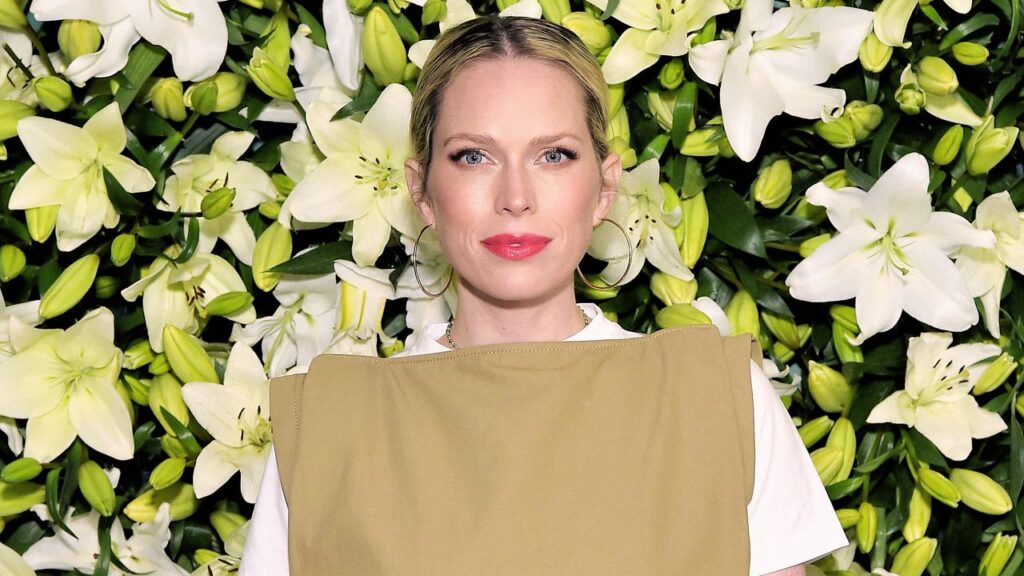If you’ve found yourself wrapped up in the whirlwind of Erin Foster’s hit Netflix series, “Nobody Wants This,” you’re not alone. In just four days since its release, over 10 million viewers tuned in to discover the charmingly chaotic romance between Joanne, a podcasting millennial played by the beloved Kristen Bell, and Noah, an emotionally available rabbi portrayed by the effortlessly charismatic Adam Brody. The series has struck a remarkable chord with audiences, captivating hearts and spawning a media buzz about its portrayal of relationships, particularly through the lens of modern-day love and Jewish identity. Rising to the top of Netflix’s charts and remaining there for weeks, the show has given rise to countless think pieces discussing its significant themes—healthy relationships, the representation of Jewish female characters, and even the undeniable chemistry between its lead actors.
Yet, amid the excitement surrounding “Nobody Wants This,” there’s an essential part of Erin Foster’s story that hasn’t received the attention it deserves—her challenging journey with fertility. At 42, she welcomed her first daughter, Noa, after enduring a grueling and emotional path that included 20 rounds of IVF. Picture that: twenty rounds of excruciating physical and emotional tests, with half of them taking place while she was busy crafting a relatable series. As someone who has been navigating similar waters, having gone through seven rounds of my own without clear direction, I found Erin’s ability to create such an engaging and heartfelt series while enduring the rollercoaster of IVF both astonishing and inspiring. IVF is notorious for being an all-consuming struggle, often leaving individuals grappling with a range of emotions that can be overwhelming and soul-crushing.
In a candid conversation over Zoom, Erin opened up about her fertility journey and how it intertwined with her creative process. The emotional toll of IVF is extensive, and there were times when she felt too numb to write. She vividly recounted the time she discovered her low egg count right after turning 34. Having navigated life without an accidental pregnancy, Erin decided to take proactive steps by starting the egg retrieval process. What followed were the stark realities of her fertility journey, beginning with just three eggs in her first retrieval and only two in the following year. The narrative is not only relatable for those who share similar experiences but also shines a light on the often unspoken struggles many women face when it comes to fertility and family planning.
During her journey, Erin eventually met Simon Tikhman, her husband, who entered the picture amidst her fertility challenges. Their budding romance added layers of complexity to her situation. She recalled gearing up for a third retrieval right before her 36th birthday, but Simon wasn’t ready to move forward as a couple on that front just yet. So, she trod forward alone, once again undergoing the tedious process, and seemed to encounter the same roadblocks as before. Each round brought its own set of hopes and disappointments, and the mental weight of those processes cannot be understated. Erin’s experience isn’t unique, but the way she navigated the messiness of love and potential parenthood makes for an inspiring tale of perseverance, determination, and the complexity of modern relationships.
The emotional journey of IVF is a daunting one, thrusting upon individuals the pressures of time, physical toll, and waiting games. Erin’s ability to channel her own heart-wrenching experiences into “Nobody Wants This” uniquely positions her to craft genuine, layered characters and relatable situations. She has expertly woven her feelings of isolation, longing, and hope into the fabric of her show, illustrating how love flourishes in unexpected places, even amidst personal turmoil. One of the most striking aspects of her journey is the resilience showcased in her work. Erin emphasized how the struggle with infertility shaped her narrative voice, allowing her to write with realism and authenticity that resonates deeply with audiences.
Ultimately, Erin Foster’s story delivers an important message—one of hope despite heartbreak. In a world where so many struggle in silence with their reproductive journeys, her openness about her IVF experience adds a much-needed voice to those who feel alone in their battles. Erin’s advice for others facing similar struggles is rooted in this very vulnerability. She encourages those navigating their paths to find support, whether through friends, family, or community, and to remember that it’s okay to have complicated feelings about the process. In sharing her story, Erin not only humanizes her journey but also fosters empathy and understanding toward others who endure the ups and downs of fertility, ultimately reminding us all of the value of honesty, connection, and love in its many forms.

